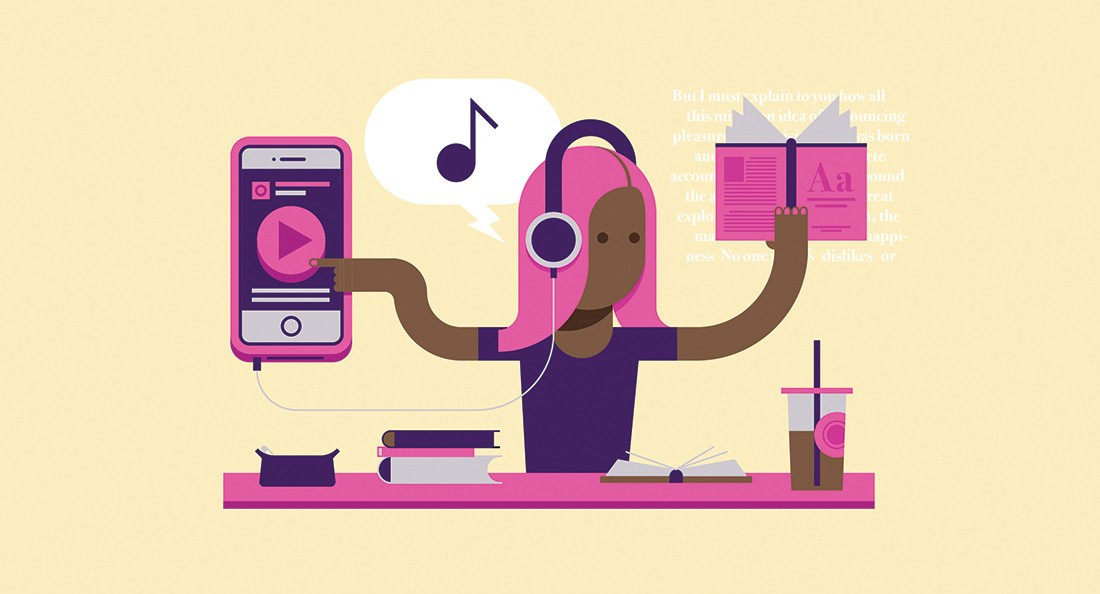Studying tunes
The theories behind the music students listen to while studying
Students are often trying to find the best way to study all of the time, and some students use music as their go-to studying aid. Finding the best tunes can be hard, especially at high-stress times like midterms week.
An idea that gained popular theory in the 1990s is the Mozart effect. This idea is linked to spatial temporal reasoning - the idea that listening to Mozart can aid in short-term improvement of performances of mental tasks. Research has tested the exposure of listening to 10 minutes of Mozart’s sonatas and improvement on test taking. These studies have come up with mixed results.
Claire Templin, a recent graduate from the University of Winnipeg with a BA in psychology, says she doesn’t think it has to be Mozart to be more effective, but she does think classical music is more effective than music with lyrics.
Templin doesn’t think that someone who listens to classical music while studying will do better on a test or quiz than someone who doesn’t listen to music at all.
The Florida National University says music helps people in high-stress situations, like finals week.
Templin says, most of the time, she wasn’t listening to music while she studied.
“I found it (music) distracting. I would be more prone to listening to classical music or music that didn’t have lyrics,” Templin says. “As a psych student, there’s quite a bit of research that shows music is a distraction if you’re trying to memorize things. If I was cramming for an exam or something, I probably wouldn’t listen to music.”
Elizabeth Byron, a former instructor at the University of Minnesota, says combining music and studying is tricky, and you can’t just say yes or no to listening or not.
“Ideally, you study or work in silence with no distractions. Music is a distraction. Studies have shown that people focus better without any background noise, including music. But that’s assuming you can find a completely silent space,” Byron says.
Templin says although music hinders her ability to study, it can be helpful in other ways.
“I think music can be helpful if you feel overwhelmed while studying. It can sort of be a destresser. If you take a 15-minute break in the middle of studying to listen to music, (then) it can be helpful. It could help you lower anxiety about school or exams, if you listen to it at other times, not while you’re actually studying,” Tempin says.
Byron doesn’t encourage her students to listen to music, as she finds it can be distracting.
“A lot of people, especially stubborn teenagers, are determined that they work better with music, and I find it’s pointless trying to convince them otherwise. So I choose my battles and ask students to ask themselves honestly what sounds they find calming - don’t listen to the same playlist you use for your morning run! - and to turn the volume down,” Byron says.
For Byron, the volume is more important than what genre of music is playing. She says that blasting classical music isn’t going to be more calming than hip hop. She also stresses the importance of listening to music without interruptions. A playlist should be able to just start playing and blend into the background.
Published in Volume 72, Number 18 of The Uniter (February 15, 2018)








